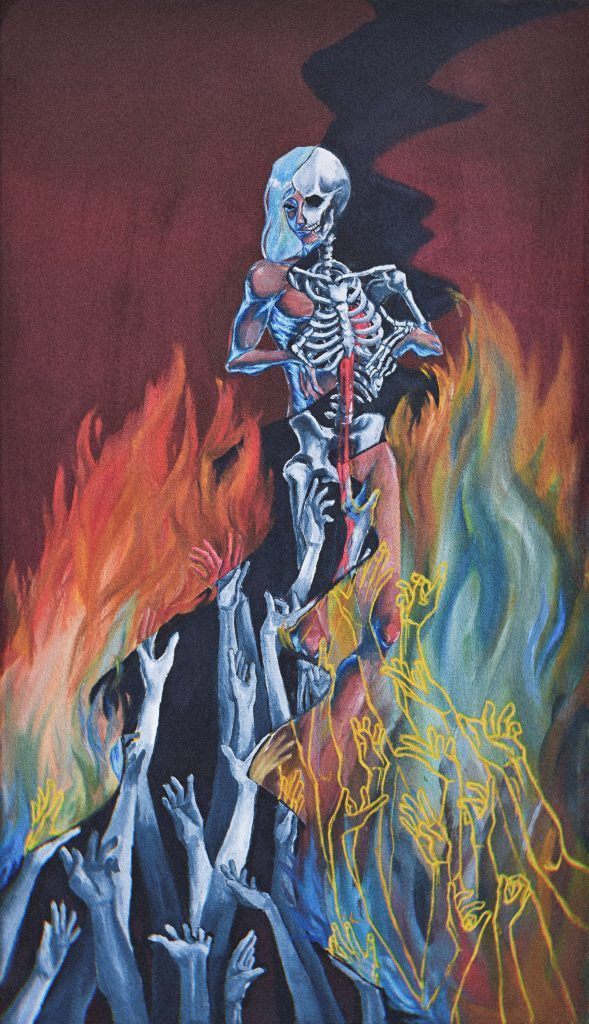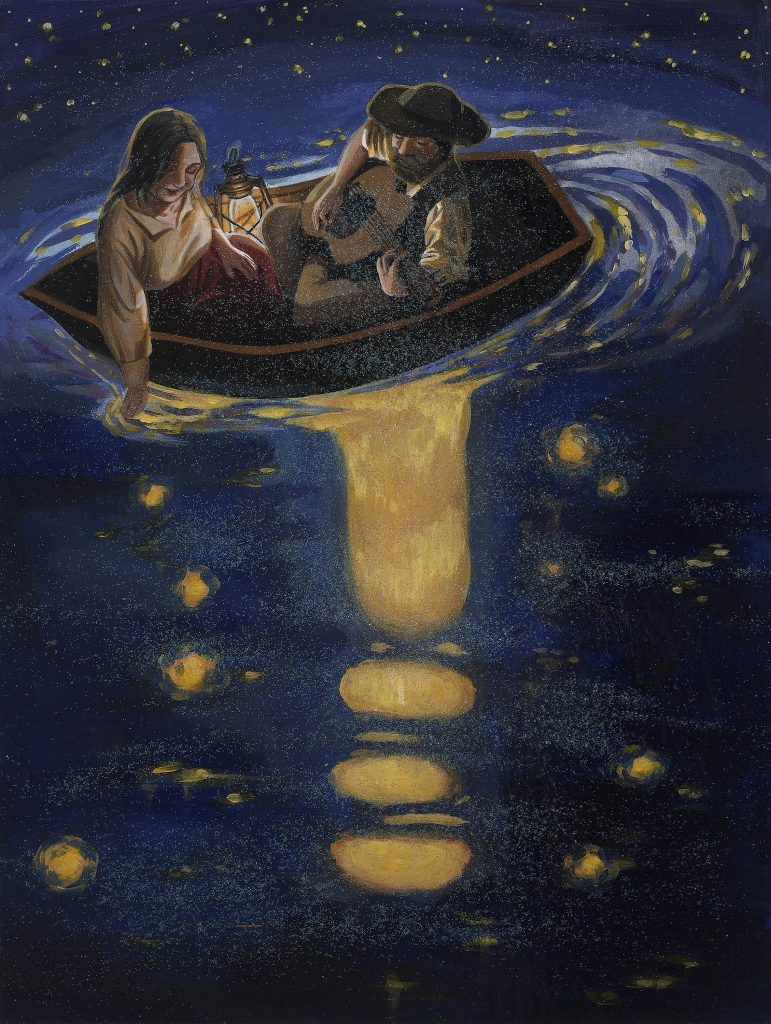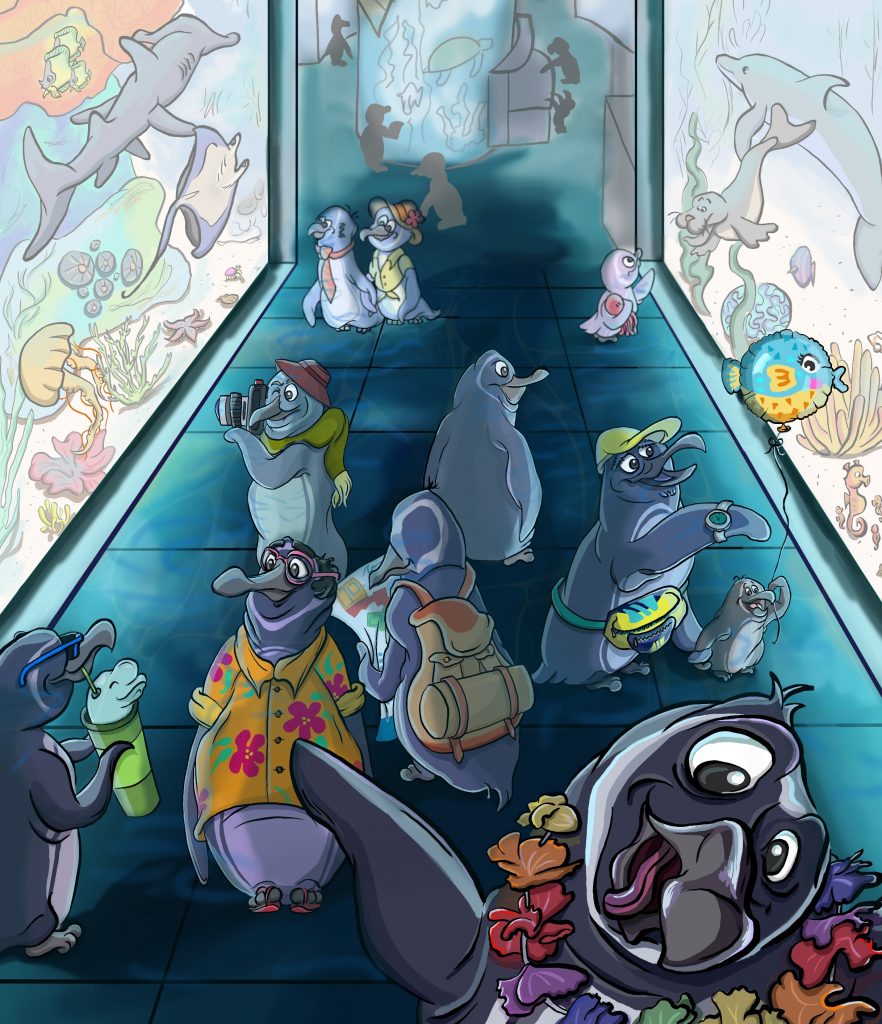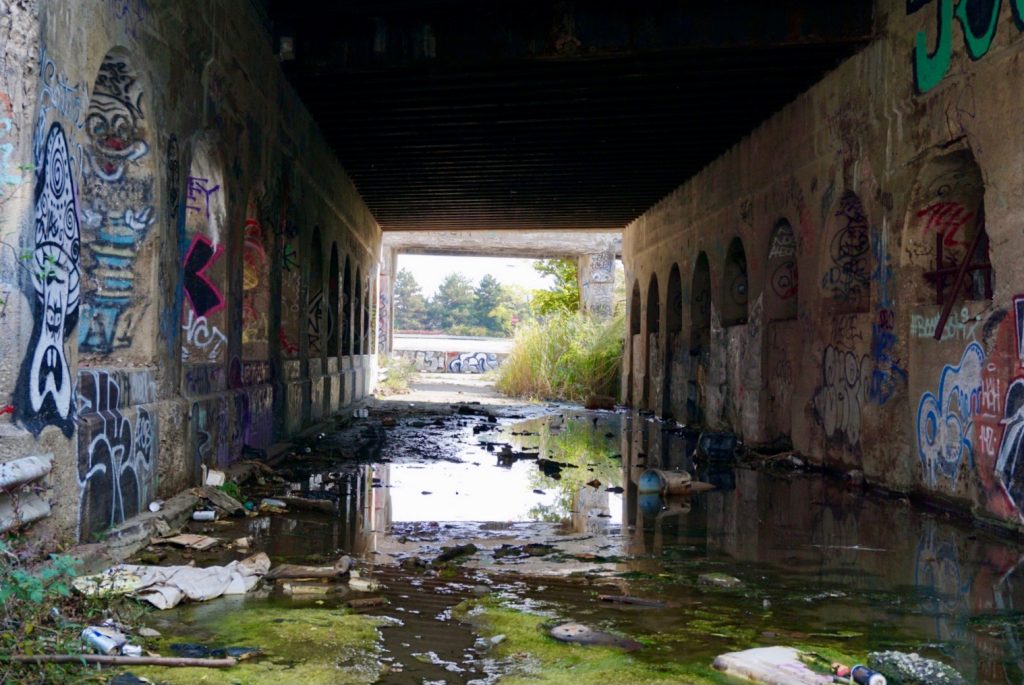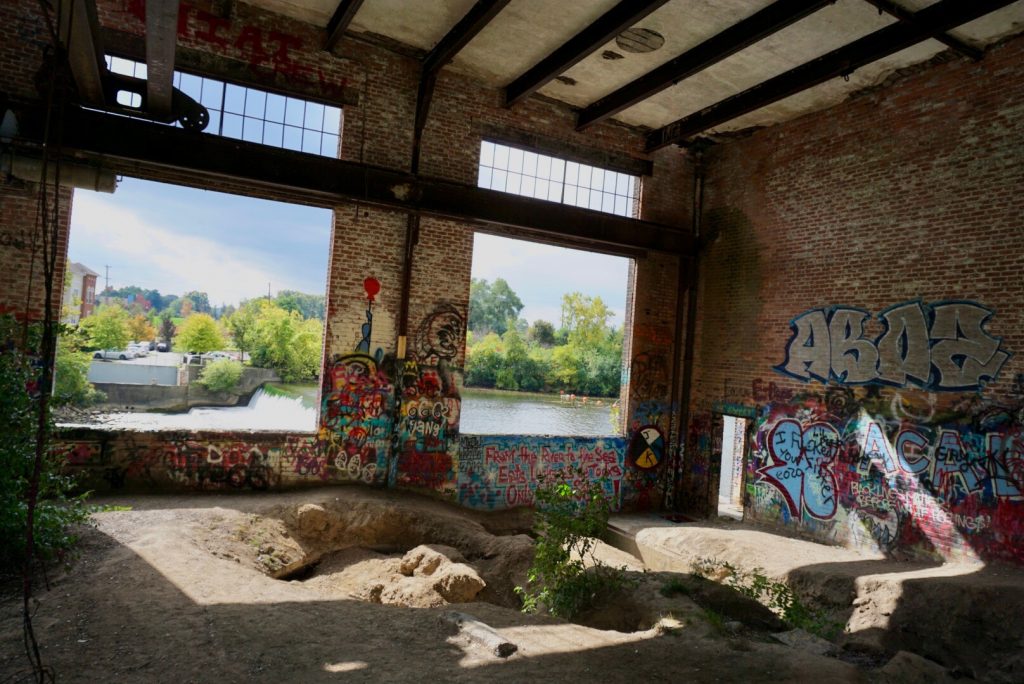Guarded by trees and heavy foliage, dotted with bulbous lamps, a winding road covered with wandering leaves lead to the streaked pink walls of a hospice. Cahercalla Hospice; the scene to my childhood. Despite the smell of old soup and antiseptic, stifling in its pungency to a child as young as four, it was homely and bright. The corridors were yellow, like the few patients who kept their teeth. The hospice was the heart of my youth; it held within its walls my nana, a great area to play in, and all of the friends I had made.
I don’t remember what she looked like, or her voice, or the feel of her embrace, but I remember the fudge. Rolled into tiny balls by my small hands and stationed upon the bedside locker like soldiers in formation. Nana loved fudge.
Mam and I would visit twice or three times a week. The nurses loved me because I was generally well-behaved and very cute. Sometimes I would sneak them fudge, too, but never rolled. Only Nana received such special treatment. She liked to call me, fondly, her ‘little nurse’. The real nurses would watch over me if mam needed a moment. I never thought my early childhood to be strange. Didn’t all children spend their formative years in a hospice?
I found out that most children did not, in fact, spend the first four years of their lives running along shiny corridors, weaving through the legs of kind orderlies and trading gummy smiles with patients. I found it even stranger when some friends told me that their nanas lived in their own homes, that their nanas didn’t have fake teeth and trouble chewing. Their nanas could walk and talk and smile and sing and dance. My nana used a wheelchair and her speech was slurred, and when she smiled it was toothless but enough to make me giggle. I had never heard her sing. I certainly never saw her dance.
These things bothered me up until they didn’t. My nana was special and I was her special nurse; that was enough.
***
The clearest memory I have of her is quite a simple one. I’m standing next to the railing of the bed, bag of fudge abandoned while I concentrate deeply on creating perfect tiny spheres of sweet goodness. Nana watches me with a smile. My efforts were always praised to the highest and I would glow with pride. Mam observes the scene with glistening eyes I was too young to consider.
One ball of fudge is swallowed, and another. Nana gifts me a present of my own, then. A porcelain Easter egg, small and pastel pink and covered in delicate white frills. I take it reverently, amazed, and watch as a frail hand quivers and removes the lid. Inside sits a rabbit amongst grass, a daisy in its mouth, ears perked happily. I stroke its shell and babble my thanks and carefully climb upon the bed to hug her.
I wish I remember what that felt like.
***
Nana died not long after and I never set foot in Cahercalla Hospice again. I often wonder if I missed it, and if it missed me in return. If it mourned me the way I mourned Nana. I hope so. I missed her deeply but never understood where she went. Or maybe I did, and I simply couldn’t think about it. I can’t recall. I don’t want to.
***
Uncle John was a man whom I knew more from seeing him cycle through town than from any actual conversation. A flash of grey hair, a quick salute, gone in a flash. In truth, the first honest conversation I had with him was when he lay on his deathbed.
Cahercalla hadn’t changed. Same bend in the road, same obnoxious lollipop lamps, and the same gaudy walls. I felt conflicted; childlike joy from years lost warring with the urge to burst into tears and flee. The corridors were too cramped, or I had grown too large. It felt totally different. The essence of Nana was lost in the place I had hoped it would remain. I was mocked by the sign: Mortuary.
Up the steps. Legs of lead. Through the corridors, past patients unfamiliar and wrong. The nurses didn’t smile with any sincerity. I nearly grabbed for my mother’s hand like a scared child. I had never been scared here before. Not even when I split my upper lip on a glass table and it had to be stitched together. The nurses were there to help, and Nana had given me an extra piece of fudge for my bravery – what was there to be afraid of?
The scent of lung cancer permeated the room. The flowers by the window drooped sadly. Were they hiding, too?
My uncle lay in his bed, resigned to the inevitable. He looked weary. If I spent my days surrounded by sunflower-yellow and white trim while relatives visited and got their goodbyes out of the way before the shopping in the boot defrosted, I would look the same. A bag of fudge would have done Uncle John some good, I thought. Maybe I would have even rolled it for him, for old time’s sake. Those little soldiers, standing en garde again. I thought perhaps the flowers would have waved a final goodbye if I had.
***
Uncle John was laid to rest in the same plot as Nana and Granddad. Wind and rain whipped noses till they shone like red beacons and camouflaged the tears cascading from heavy eyes. Dozens of flowers wept their sorrows as they sat by the tombstone.
Here Lies James “Jimmy” Daly and Catherine “Kitty” Daly, they warbled, and their son, John Daly.
On the way home we pulled into a shop. Bags of fudge hung on hooks. They stared as I marched towards check-out, as I shook in damp funeral clothes, as I paid and brought them home. Older. Taller. Hair longer, shoes bigger. Same scar on my lip.
I rolled the fudge. Same texture, same taste.
Bríanne O’Gorman (she/her) is a twenty-year-old Creative Writing student from Ireland. Previous work is featured in Neuro Logical Magazine.
